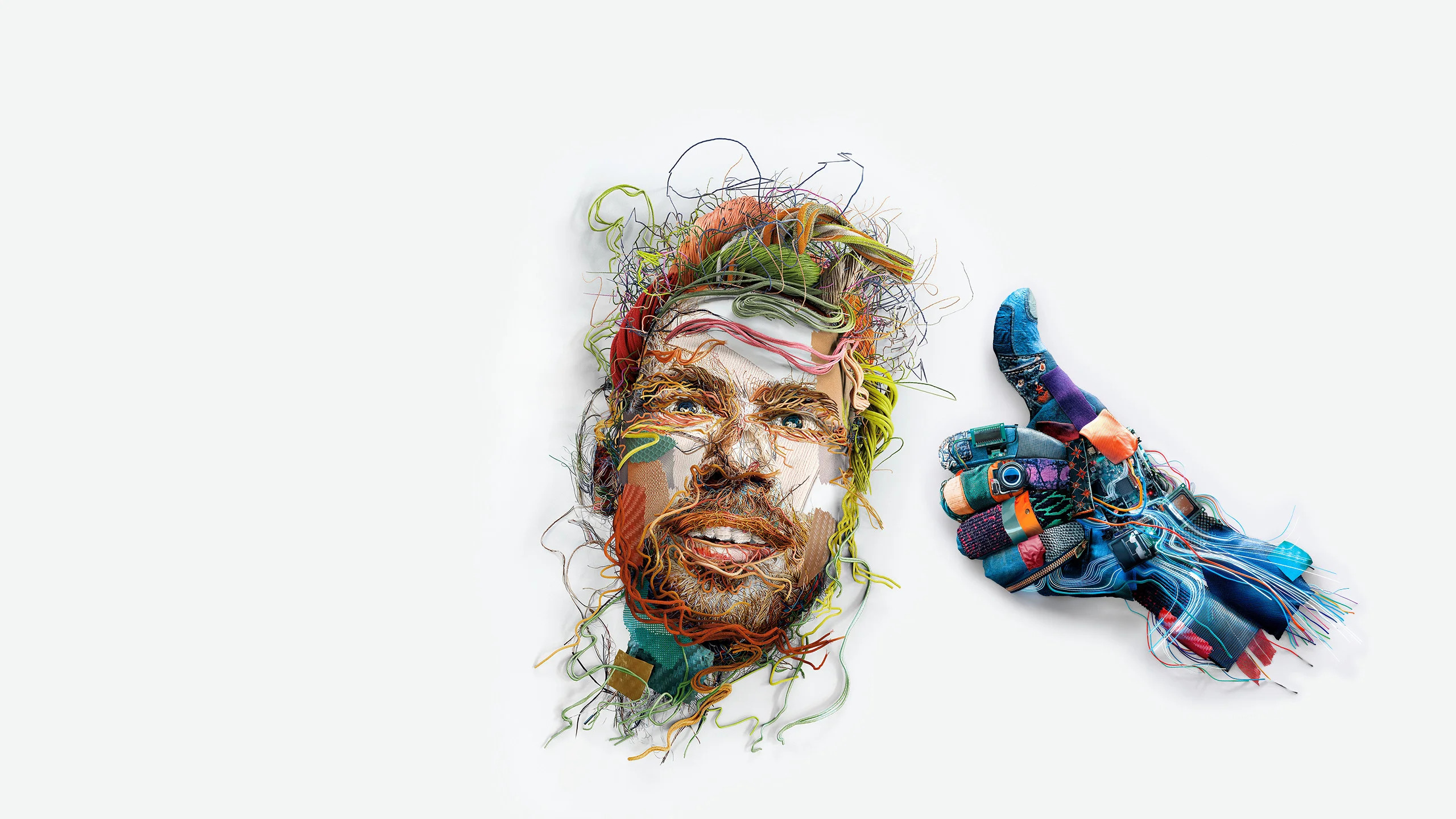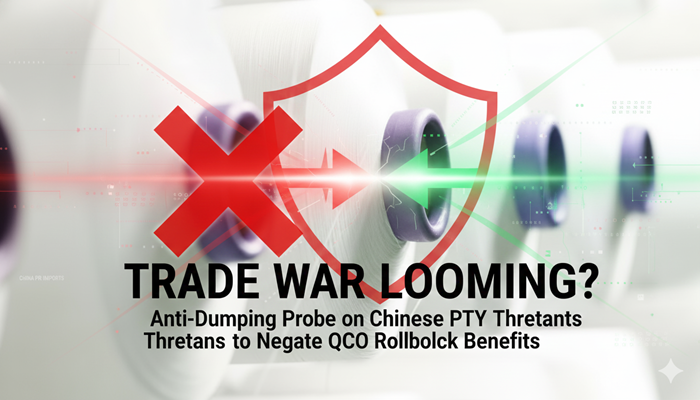FW
Raising hopes for a much bigger harvest, the Zimbabwean government has released about $6 million to procure additional cotton inputs under the Presidential Input Scheme, it is understood. This comes after farmers in some major cotton producing areas had reported shortages of fertilizers and chemicals as farmers planted a bigger hectarage than the initially projected.
The $6 million worth of inputs are in addition to $42 million the Government is spending to finance cotton production. The programme is being administered by The Cotton Company of Zimbabwe, which has since been taken over by the Government through conversion of debt into equity.
The national cotton crop is expected to register substantial increase this year. Incidentally, this growth has been driven by Government support in the form of free inputs and the good rains. However, the yields would have been affected as a result of shortages of top dressing fertilizers and chemicals that protects crops from diseases. The success of cotton in Zimbabwe was built around the inputs of Cottco credit scheme which started in 1992 and ensured that farmers received adequate funding and quality incentives.
Seeing that the market continues to maintain strong and so the prices, after reaching record levels, wool producers across Australia are a celebrating lot. Last Wednesday, the Eastern Market Indicator (EMI) — Australia's wool market benchmark hit a historic new level of 1439 cents a kilogram and then fell back to finish the week at 1434 cents a kilogram.
The previous record of 1425 cents were standing strong 2012. And the new lofty prices have many producers confident for the year ahead. Producer Matt Ashby from Gulnare, South Australia said that producers were relieved to see some good prices.
New South Wales producer John Alcock from Bombala agreed that the fashion industry was utilising more Australian wool. After the finer microns took off, he was of the belief that it was largely due to the fact that the Chinese have realised if they want good quality materials they've got to use the nice, finer, softer wools with good, traditional crimping and that drape well. No doubt, they had to struggle to get the better quality wools, he rued.
As per the economists, the withdrawal of the United States from the Trans-Pacific Partnership (TPP) will galvanise momentum for the successful conclusion of the Regional Comprehensive Economic Partnership (RCEP). Asia Pacific Chief Economist for IHS Global Insight, Rajiv Biswas said that the US President’s signing of an executive order, confirming the country’s exit from the TPP, would accelerate a significant shift in the trade policy landscape in the Asia Pacific region.
In a statement today, Biswas said the US withdrawal would also help strengthen China’s economic leadership position in the Asia Pacific, in respect of the RCEP and Free Trade Area of the Asia-Pacific (FTAAP). He said China was also undertaking its own regional economic initiatives, such as the One Belt One Road regional strategy as well as playing a major role in creating new development finance institutions such as the Asian Infrastructure Investment Bank (AIIB).
China is likely to play a much stronger lead role in the future Asia Pacific trade architecture through a number of multilateral trade liberalisation initiatives, notably the RCEP and FTAAP, Biswas observed. He added that at the Asia-Pacific Economic Cooperation (Apec) Summit held last November in Lima, Peru, two Latin American TPP member countries, Chile and Peru, also expressed interest in joining the RCEP negotiations.The RCEP is an Asia-Pacific trade liberalisation initiative led by China that includes the ten Asean members as well as Australia, New Zealand, Japan, South Korea and India.
The Pakistan Prime Minister Nawaz Sharif met Japanese envoy Takashi Kurai in federal capital on Wednesday, it has been reported. While conferring, the prime minister said that Pakistan considers itself a close friend and trade partner of Japan that co-operated in Operation Zarb-e-Azb against terrorism to ensure peace. He said that his country was hopeful that Japan will review the decision of including Pakistan in its travel advisory list.
The premier asked Japan to consider a three to four year tariff exemption for Pakistani textile products. The move will facilitate the country’s struggling textile industry, he observed. He suggested that there are plenty of investment opportunities between Japan and Pakistan in the fields of trade, energy and infrastructure development. He was of the feeling that both the countries need to sign bilateral free trade agreements. He categorically stated that he would welcome investments by Japanese companies in Pakistani industry.
On the other hand, Japanese ambassador praised economic growth in Pakistan. He said that Pakistan has become a suitable country for business in the sight of Japan.
London-based private equity firm Palamon Capital Partners has acquired a majority stake in Swedish socks and underwear brand Happy Socks. The company bought out Happy Socks’ previous majority owner Scope for SEK 725 million (ca. €76.3 million). The amount is 4.7 times the amount that Scope invested in the company way back in 2015.
Additionally, Palamon invested SEK 40 million of growth capital in the brand to support its continued expansion. Happy Socks founders Mikael Söderlindh and Viktor Tell shall remain actively involved in the company following the transaction.
Söderlindh and Tell founded Happy Socks in 2008 and disrupted the global sock wear market by offering attractively priced colourfully patterned socks in a fashion context and promoting celebrity collaboration and a strong social media presence. Happy Socks are today sold in more than 90 countries through more than 10,000 points-of-sale and own retail stores, generating retail sales of €100 million in 2016.
In the last two years Happy Socks has grown beyond the company’s expectations. This has transformed the company into a real growth engine by strengthening our operational platform and our global presence. The company is of the feeling that it has achieved the best of both worlds by securing a strong new partner in Palamon and remaining significant owners in a great business that we will continue to build in the years to come.
"President Donald Trump has vowed to impose tariff of up to 45 per cent on goods from China, slash US corporate tax rate to 15 from 35 per cent and reshape the workforce by bolstering manufacturing sector and imposing stricter immigration rules. These dramatic shifts could have far-reaching and unforeseeable consequences in the global order)."
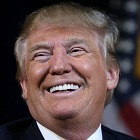
President Donald Trump has vowed to impose tariff of up to 45 per cent on goods from China, slash US corporate tax rate to 15 from 35 per cent and reshape the workforce by bolstering manufacturing sector and imposing stricter immigration rules. These dramatic shifts could have far-reaching and unforeseeable consequences in the global order).
Taxation conundrum
On the seemingly love-hate group for the newly president, Gary Wassner, CEO & Principal of fashion investment house Interluxe Holdings says is its diversity that makes US great. We must continue to celebrate it. The right to vote and the right to dissent are endemic to our way of life. “We need to embrace one another now and deal with this dangerous world as one nation. I maintain my hope that we will come together as an industry and as a country and create opportunity for everyone.”
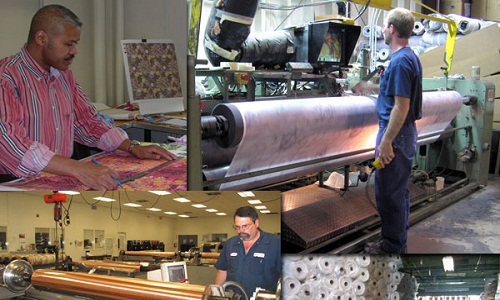
Alibaba executive chairman Jack Ma during his speech at the 2017 World Economic Forum Annual Meeting in Davos, Switzerland recently had urged people to give Trump a chance. “Give President Donald Trump some time. He has an open mind.”
A lower corporate tax rate would certainly be welcome and could give many ailing companies a big bottom-line boost, but most fashion retailers primarily sell goods made oversees and are subject to tariffs or trade agreements (that could now be renegotiated). The picture is more complex, particularly for companies based in China or those with businesses that depend on warm relations between Beijing and Washington (as Trump moves to bring the US closer to Russia).
There is significant uncertainty on policies of the Trump administration, feels Mariana Kou, Analyst, CLSA. While there maybe some support for domestic consumption, the destocking cycle and the smaller-order size amid a fast-changing retail industry mean that they may not see a pickup at Li & Fung in the next nine to 12 months. Trump’s rather protectionist stance could further hurt Li & Fung’s trading business.
Wilbur Ross, the turnaround specialist who has in the past invested heavily in the textiles industry and is Trump’s pick to head the Commerce Department, trade is an area where the buyer has a lot of leverage. On retaliation to US punitive tariffs, the world’s largest customer is dealing with its vendors,” he said at his Senate confirmation hearing. “I view these other countries with whom we have trade as vendors. While you need to treat the vendors with respect, they must also treat you as their largest customer both with respect and more importantly, playing by the rules of the road. To the degree they don’t, it must be enforcement.”
At a time of great disruption, companies often look to strengthen through M&As, but the landscape needs to be settled enough to get the deal done. In the US, uncertainty surrounding policy decisions the Trump administration will make with respect to key matters such as corporate taxes, tariffs, foreign investment and trade agreements will result in a ‘wait-and-see’ approach to deal-making, as potential acquirers await clarity on policy direction and the impact of such policies both on the acquirers’ businesses and those of potential targets.
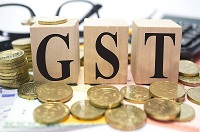
Implications on indirect tax
 get subsumed. For textile and its products, the GST
get subsumed. For textile and its products, the GST
Option of tax payment job work in GST
GST and Exports
Uhde Inventa-Fischer, a subsidiary of Thyssenkrupp Industrial Solutions AG will build a polyethylene terephthalate (PET) plant for Sasa Polyester Sanayi A.Ş in Adana, Turkey. The contract was signed in July last year and came into effect in December. With a capacity of 1,050 metric tons per day, it will be one of the largest Pet plants for textile applications worldwide. The product is used for clothing, home textile or technical applications with direct melt feeding to four staple lines and one additional bi-component fiber line.
The design of the poly condensation plant will be based on Uhde Inventa-Fischer’s proven, energy-efficient 2R polyester technology that comprises the patented Espree and Discage reactors. This enables the production of a superior high-quality polyester polymer. A characteristic feature of the plant is that the polymer melt will be conveyed directly from the poly condensation plant to several downstream spinning lines where staple fibers will be produced.
Uhde Inventa-Fischer will handle the basic and detail engineering, provide technical services for erection, pre-commissioning and commissioning supervision and deliver proprietary equipment and key components for the plant. The plant will be completed by the end of 2018.
After agriculture, the textile industry is the second largest employee in the country it contributing about 14 per cent to industrial production and 4 per cent to the GDP. It gives direct employment to around 45 million people. Off late, the industry has gone through lot of difficulties post demonetization and needs special attention in the budget.
Introduction of the GST, reduction of interest rates in parity with the international money market, tax rationalisation measures and incentives for investments in innovation and infrastructure are few of the many demands by the textile industry for the upcoming budget. It should also address concerns related to skilled workforce, labour law reforms attracting investments in the textile sector and providing a future road map for the textiles and clothing industry, it feels.
The textile industry is also of the feel that corporate income tax needs to be lowered to 28 per cent in the upcoming budget and lower it further to 25 per cent in the coming years as promised by FM. The Rs 6,000 crore package announced in 2016 for textiles and apparel sector was a step in the right direction but the industry needs lot of reforms for the revival of the growth. A major challenge for the textile industry is that it is highly capital and labour intensive sector and payback period is quite long which is many a times a big constraint for new investment in the sector.
It needs special attention for the success of Make in India, an initiative launched by Government of India under the leadership of the Prime Minister of India. The government should earnestly consider extending TUFS for another five years or so to enable companies to avail maximum benefit.
Exports are another challenge and industry is well below its targets. The textile industry has asked the finance minister to introduce measures which can boost our exports as India has the potential to become one of the biggest exporters in the world.
Russia will set up its first polyethylene terephthalate complex that would produce textiles. Located in the town of Vichug located in the Ivanov region, the plant is a modern production facility in Russia which is deemed necessary for the industry. An investment of around 25 billion rubles ($419 million) is being made on the project. At present, preparatory procedures are underway, while construction of the complex is planned to start in summer.
Giving details, Pavel Konkov, Governor of the Ivanov region said the modern integrated plant will be capable of producing out almost 200,000 tons of synthetic fiber and yarn per year, The enterprise is scheduled to be launched in the year 2020.
The textile grade Pet production plant will become an anchor project with production volume of up to 200,000 tons of polyester fiber and Pet-chips per year. The Ivanovo region is a part of the Central Federal District of Russia. The governor of the Ivanovo region Konkov said in future a complex of new textile plants will be created, specializing in innovative import substitution products for special and technical purposes with the use of polyester fibers and yarns.
The idea of setting up the plant is to establish its own production of synthetic fibers was born in the even before import substitution became a trend. However, during the implementation some problems came up, the project turned to be capital-intensive, while dependence on imports has not been considered a serious problem. When the plant in Ivanovo region reaches full capacity, it will cover all the needs of Russian producers of raw materials.



